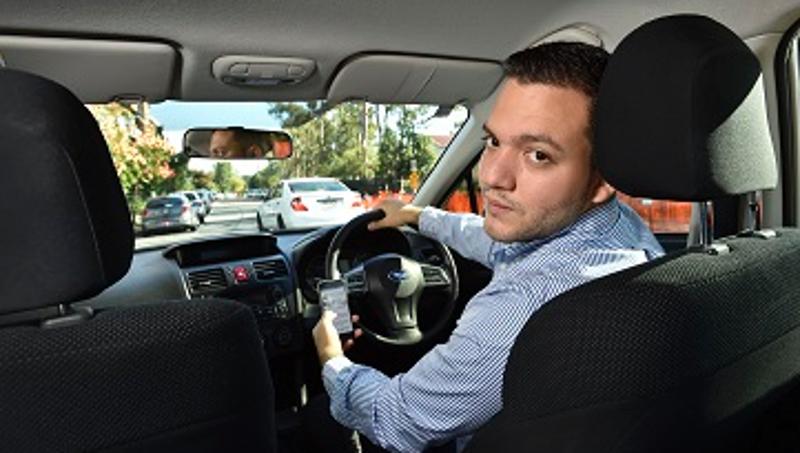
With mobile phone distracted driving a growing road safety issue, a QUT study reveals why some drivers slow down when using a mobile phone but others don’t.
Oscar Oviedo-Trespalacios, from QUT’s Centre for Accident Research & Road Safety – Queensland (CARRS-Q), said mobile phone distracted driving was responsible for 25 per cent of car crashes in the United States and worldwide young drivers are overrepresented in using mobile phones.
“At least one in two young drivers in countries such as Australia, America and Canada use a mobile phone while driving,” said Mr Oviedo-Trespalacios who has just published his paper Self-regulation of driving speed among distracted drivers: An application of driver behavioural adaption theory in the international journal Traffic Injury Prevention.
“Mobile phone use by drivers is only going to increase given the way they are used in every part of our lives. So we need to do more research into how to make it safer and also introduce educational programs addressing it.
“Current research reports that some drivers change their driving behavior when using a mobile phone; in particular they drive more slowly. However, until now we did not know whether this was an unconscious response to the increased workload or an active choice made by cautious drivers.”
In a high-fidelity driving simulator at QUT, the speeds of 32 drivers aged 16-26 was measured while they held hands-free and handheld phone conversations or just drove.
Mr Oviedo-Trespalacios said the drivers with little experience using mobile phones while driving tended to drive more slowly. Likewise, drivers who believe mobile phones are unsafe were found to drive more slowly while engaged in mobile phone tasks.
“Mobile phone systems are continuing to evolve and they have changed what we do when we are driving and will continue to influence it into the future,” he said, adding that recent developments in mobile phones have included a new unexpected risk via the use of augmented reality-based apps while driving.
“Our research has identified that drivers who have a strong belief in their ability to successfully self-regulate mobile phone use might find themselves in more risky circumstances while performing lawful tasks such as hands-free conversations.
“This suggests that educational interventions could be oriented to the development of safety attitudes. Changing the design of mobile phones so it’s harder to use them while driving could also help to minimise risk.”
Mr Oviedo-Trespalacios’ research project was conducted with Dr Md. Mazharul Haque, Dr Mark King and Professor Simon Washington. The full report is available online.
Media contact:
Amanda Weaver, QUT Media, 07 3138 9449, amanda.weaver@qut.edu.au
After hours: Rose Trapnell, 0407 585 901, media@qut.edu.au




